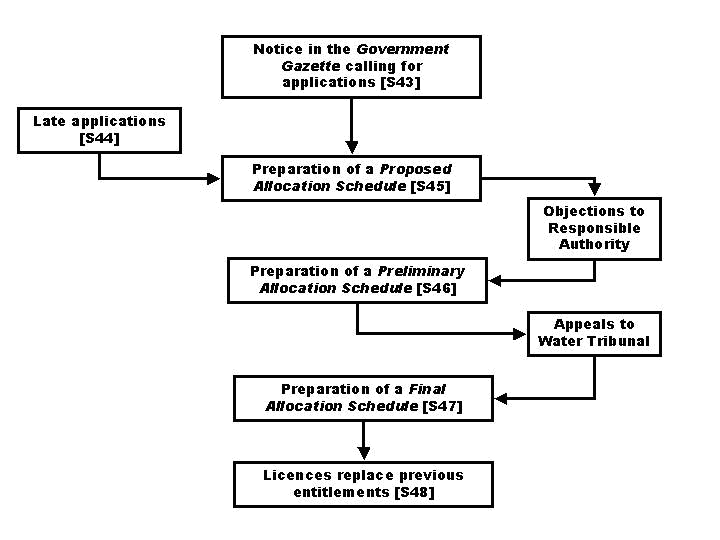Compulsory licensing is a mechanism created in the National
Water Act (NWA) [PDF
- 239 KB] to allow DWS to review all the water use in an area to make
sure that;
- All South Africans have an equal opportunity to apply to use water.
- Water is shared out fairly.
- Everyone who wants to use water to improve their livelihoods, or for commercial
purposes can get a chance to do so.
- Water is used in the best and most efficient way possible, to the benefit of the
public, the applicants, and the nation as a whole.
- Our water resources are protected, and kept clean and healthy.
Compulsory licensing has been initiated in 3 catchments namely Mhlathuze in
KwaZulu Natal province, Jan Dissel in Western Cape Province and Tosca in North
West province.
Compulsory licensing also converts existing lawful water use into licences,
and is done after the extent of existing lawful water use has been determined.
(see also How is Water Use
Authorised)
The Department will usually announce compulsory licensing in an area some 6
months to a year before actual calls for licence applications are made. This
gives everyone time to prepare for a difficult and demanding process. After the
announcement, a Water Allocation Plan will be developed (if a Catchment
Management Agency is already in place they may have already developed this
plan). This Water Allocation Plan will
- Indicate how much water is required for the Reserve, for strategic water
uses (e.g. Power Generation), and for International Requirements. (This will
indicate how much water we have to allocate to other users.)
- Indicate how much water is tied up as existing lawful water use.
- Outline good opportunities for emerging users to establish successful and
sustainable water using businesses.
- Indicate the kind of curtailments that might be needed to existing lawful water
users to meet all the new demands for water.
- Outline the allocations that would be made to various water using sectors
(irrigation, domestic, mining, industrial, and forestry)
Once the Water Allocation Plan has been developed and discussed with all
stakeholders, the Department will start the compulsory licensing process as
outlined below.

This means that all water users, including those who have existing lawful water
use certificates, must reapply for a licence. This means all water use can be
evaluated on an equal basis. The Department will, when developing the
proposed allocation schedule, take the “rules” for reallocation into
account, and will make allocations based on what is considered to be beneficial
use in the nation’s interest.
The compulsory licensing process will also include extensive awareness and empowerment programmes
to make sure everyone is aware of the process, and has the means to participate
and to make productive use of the water.
All users will have the opportunity to raise objections to the Department. If
these fail the Water Tribunal could be approached.
Related Information:
|